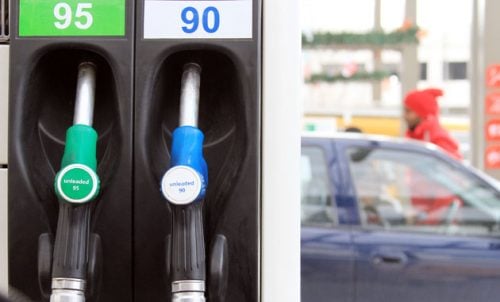Gasoline prices in Jordan for the month of April 2023 are scheduled to witness the first decline in 3 months, after stabilizing during this March, following their rise in February.
The decline in fuel prices in Jordan next month coincides with the decline in average prices of crude oil and derivatives during this March, compared to their counterparts in January, according to data obtained by the specialized energy platform.
Today, Friday, March 31, the Petroleum Derivatives Pricing Committee announced the prices of gasoline in Jordan and other oil derivatives, which are expected to be implemented during April (2023).
Gasoline prices in Jordan for the month of April 2023
The committee decided to reduce the price of gasoline in Jordan for the month of April 2023 by about 5 fils, as well as reduce the price of diesel by about 25 fils, and fix kerosene for the fourth month in a row, according to a statement obtained by the specialized energy platform.
The prices of gasoline in Jordan for the month of April 2023, and other oil derivatives, which are scheduled to be implemented starting tomorrow, Saturday, are as follows:

- Reducing the price of a liter of 90 octane petrol from 945 fils to 940 fils.
- Reducing the price of a liter of 95 octane petrol from 1,185 fils to 1,180 fils.
- The price of diesel was reduced from 810 fils to 785 per liter.
- Fixing the price of kerosene at 620 fils.
- Fixing the price of a domestic gas cylinder (liquefied petroleum gas) at 7 dinars.
* (1000 fils is equivalent to a Jordanian dinar = 1.41 US dollars)
In January, the Jordanian monarch, King Abdullah II, directed the government to freeze the tax on kerosene, which is one of the most consumed fuels in the kingdom, during the winter season, with the aim of easing the burden on citizens.
Fuel prices in Jordan
The decline in gasoline prices in Jordan comes in line with a number of expectations, which indicated the possibility of a reduction in the price of fuel after the decline in oil and its derivatives prices, during the current month, after the crisis that affected many banks revived fears of a global recession.
Fuel prices in Jordan were affected by the strikes that energy markets suffered during 2022, following the outbreak of the Russian-Ukrainian war, which pushed oil prices to the highest level in 14 years.
The crisis forced the Jordanian government to raise fuel prices in an attempt to reduce the energy bill, which rose by 47.2% in 2022, to record about 3.5 billion dinars ($4.93 billion) in 2022, compared to 2.38 billion dinars ($3.35 billion) in 2021.
Jordan suffers from a significant increase in the bill for oil derivatives, as it secures about 90% of its needs by importing them from abroad, with the decline in oil production from the Hamzah field – the only oil field produced in the Kingdom -.
It is noteworthy that the government imposes a special tax on diesel and kerosene, at about 16.5 piasters per liter, while the 90-octane gasoline tax is about 37 piasters per liter, and 57.5 piasters per liter of 95-octane gasoline.
related topics..
Also read..

Leave a Reply